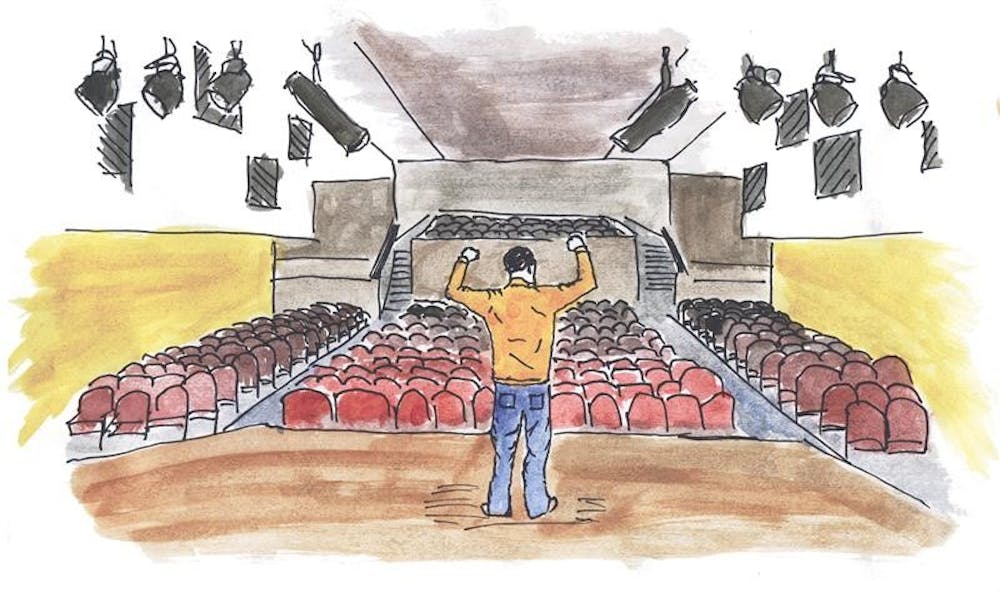Whether the passion is music, dance or theater, every performer knows the first – and often most nerve-wracking – step is the audition process. While practice and natural talent are important, experts say other factors can improve chances of success.
Music
Townsend Plant, director of music admission and financial aid for the Jacobs School of Music, advised students to individualize an audition.
“It’s imperative that students choose selections that are well within their technical abilities and showcases their strengths,” he said.
Plant said auditioners, or the people who will judge an audition, place varying degrees of importance on appearance. While he does not give it much weight, he said it can’t hurt to look one’s best.
“It is a plus when a student comes in and has paid attention to details,” he said, adding that he always recommends a suit over jeans. “It just speaks to the overall professionalism of the student in some cases.”
Dance
Michael Vernon, chair of the Ballet Department, emphasized the value of performance experience, ranging from class and minor parts in shows to lead roles.
“Auditioning is very much like performing,” he said. “The only way to really improve one’s performance is to perform more.”
Beyond this, Vernon said he looks for self-control and attention to one’s appearance, such as hair, clothing and body language.
“It actually is very important to present themselves as a professional would,” he said. “You have to show yourself off at your very best ... even if you’re really nervous.”
It is also key that the performer play to his or her personal strengths, Vernon said. Physically, there is no longer a specific “tall and skinny” type; he looks for dancers who are “proportionally pleasing,” meaning they have the correct bodily ratios; for example, height to limb length and shoulder breadth, for ballet movements.
“Our technique is so demanding because you can’t really lie about the body,” he said.
Most importantly, Vernon emphasized playing to individual strengths and said students should not try to be better than they are.
“Show what you can do, as opposed to what you’d like to do or what you can’t do,” he said. “Show your personality through your work, through your dancing.”
Theatre
Professor Dale McFadden, head of the acting/directing division of the Department of Theatre and Drama had several key tips for hopeful thespians.
“Determine and know what the auditioners are asking for – is it a monologue, a cold read or simply an interview?” he said.
If auditioners are looking for the first, his advice is simple.
“Actors must always be working on a monologue – whether they have an audition or not – so they’ll be prepared,” McFadden said. “I do recommend actors taking monologue classes with teachers and agents. You don’t have to do this alone, nor should you.”
For a cold read, when the audtioner gives the actor a portion of the script to perform without preparation, actors must adapt.
“Give yourself plenty of time to read it so you can make interpretive choices in the audition,” McFadden said.
In an interview, he advised bringing a professional-quality photo and resume.
“Be prepared to find out as much as you can about the project,” he said. “It’s a two-way process in which you can ask and should ask questions.”
Students must remember auditions are subjective and not personal, McFadden said.
“Believe in yourself and believe that other people are looking for the best in you, because 99 percent of the time, they are,” he said. “When you walk into the room, they’re looking for the best in you, not what’s wrong with you.”
Landing the role
Experts say students should play to individual strengths, not try to be better than they are

Get stories like this in your inbox
Subscribe





